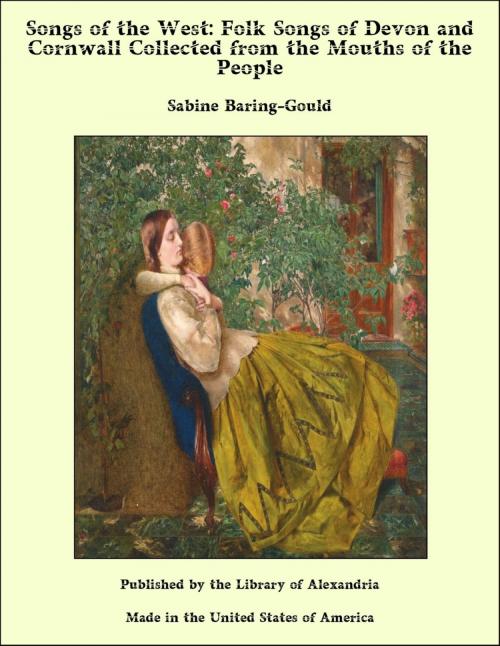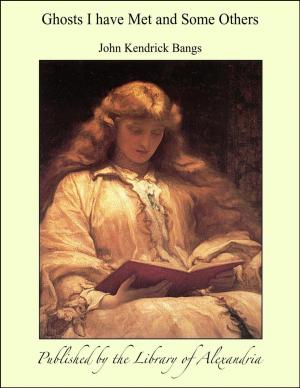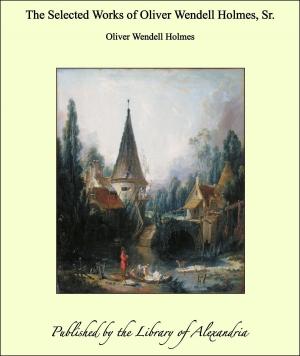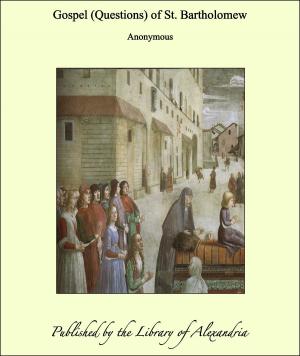Songs of the West: Folk Songs of Devon and Cornwall Collected from the Mouths of the People
Nonfiction, Religion & Spirituality, New Age, History, Fiction & Literature| Author: | Sabine Baring-Gould | ISBN: | 9781465618658 |
| Publisher: | Library of Alexandria | Publication: | March 8, 2015 |
| Imprint: | Language: | English |
| Author: | Sabine Baring-Gould |
| ISBN: | 9781465618658 |
| Publisher: | Library of Alexandria |
| Publication: | March 8, 2015 |
| Imprint: | |
| Language: | English |
At the present day, we are so accustomed to choral and concerted music that we have come to care little for formal melody, and Wagner has taught us to be content with musical phrases alone. Melody is a musical idea worked out in successive notes of our scale. Modern music is constructed in but two of the seven diatonic modes, in which melodies may be cast, the major and the minor; with the result that the modern ear entertains no appreciation of an air that is not in the Ionian scale, the "tonus lascivus" of the ancients. The jongleur or minstrel had but the rudest of instruments; the peasant singer had none at all. What interest he can create, what effect he can produce, must be through melody alone. Now, I venture to assert that the folk music of the English peasantry has been surpassingly rich in melodiousness, and that no tune has had a chance of living and being transmitted from generation to generation, unless it have a distinct individuality in it, in a word, contains a melodious idea. Moreover, not having been framed only in the common major or minor key, it is abundantly varied. It has been a well-spring from which hitherto we have not drawn. In former times, that strongly defined dividing line which separates the cultured from the uncultured did not exist. The music of the peasant was also the music of the court; the ballad was the delight of the cottager and of the noble lady in her bower. But the separation began, in music, in the Elizabethan days; in ballads, in those of James I., when nearly every old ballad was re-written to fresh metres, unsingable to the traditional airs. The skilled musician scorned folk melodies, and revelled in counter-point. It is a mistake to suppose that all mediæval music was in the Gregorian modes other than our major and minor. Even in the 13th century, the modern major mode was used, so that some of our traditional airs, which seem to be modern may really be old. M. Tiersot notes that among the melodies extant of three trouvères of the Thirteenth century, a certain number are modern in character. Of twenty-two airs by the Chatelain de Coucy, three are frankly in the major; five others in the 7th or the 8th tone, give the impression of the major. Of nine melodies by the King of Navarre, four are in the major, a fifth in the 7th tone, is of the same nature as those of De Coucy. Of thirty-four chansons by Adam de la Hall, twenty-one are in the major. The folk airs that we give in our collection may not please at first, certainly will not please all; but when once a relish for them has been acquired, then hearers will turn with weariness from the ordinary concert hall feebleness, as we turn from the twaddle of a vacuous female. We have found it necessary to take down all the variants of the same air that we have come across.
At the present day, we are so accustomed to choral and concerted music that we have come to care little for formal melody, and Wagner has taught us to be content with musical phrases alone. Melody is a musical idea worked out in successive notes of our scale. Modern music is constructed in but two of the seven diatonic modes, in which melodies may be cast, the major and the minor; with the result that the modern ear entertains no appreciation of an air that is not in the Ionian scale, the "tonus lascivus" of the ancients. The jongleur or minstrel had but the rudest of instruments; the peasant singer had none at all. What interest he can create, what effect he can produce, must be through melody alone. Now, I venture to assert that the folk music of the English peasantry has been surpassingly rich in melodiousness, and that no tune has had a chance of living and being transmitted from generation to generation, unless it have a distinct individuality in it, in a word, contains a melodious idea. Moreover, not having been framed only in the common major or minor key, it is abundantly varied. It has been a well-spring from which hitherto we have not drawn. In former times, that strongly defined dividing line which separates the cultured from the uncultured did not exist. The music of the peasant was also the music of the court; the ballad was the delight of the cottager and of the noble lady in her bower. But the separation began, in music, in the Elizabethan days; in ballads, in those of James I., when nearly every old ballad was re-written to fresh metres, unsingable to the traditional airs. The skilled musician scorned folk melodies, and revelled in counter-point. It is a mistake to suppose that all mediæval music was in the Gregorian modes other than our major and minor. Even in the 13th century, the modern major mode was used, so that some of our traditional airs, which seem to be modern may really be old. M. Tiersot notes that among the melodies extant of three trouvères of the Thirteenth century, a certain number are modern in character. Of twenty-two airs by the Chatelain de Coucy, three are frankly in the major; five others in the 7th or the 8th tone, give the impression of the major. Of nine melodies by the King of Navarre, four are in the major, a fifth in the 7th tone, is of the same nature as those of De Coucy. Of thirty-four chansons by Adam de la Hall, twenty-one are in the major. The folk airs that we give in our collection may not please at first, certainly will not please all; but when once a relish for them has been acquired, then hearers will turn with weariness from the ordinary concert hall feebleness, as we turn from the twaddle of a vacuous female. We have found it necessary to take down all the variants of the same air that we have come across.















